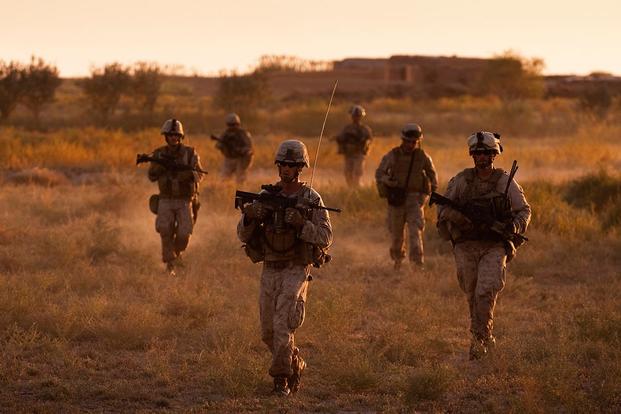This article originally appeared on Task & Purpose, a digital news and culture publication dedicated to military and veterans issues.
The Washington Post has obtained confidential documents showing that top U.S. military officials have repeatedly lied to the American public about the war in Afghanistan, despite many having clear knowledge the effort is unwinnable.
Similar to The Pentagon Papers, the documents were part of a "Lessons Learned" report compiled by the Office of the Special Inspector General for Afghanistan reconstruction, which included interviews with more than 400 officials, according to Washington Post reporter Craig Whitlock, who broke the story.
"From the ambassadors down to the low level, [they all say] we are doing a great job," retired Army Lt. Gen. Michael Flynn said in a 2015 interview. "Really? So if we are doing such a great job, why does it feel like we are losing?"
The interviews show that U.S. military officials had no confidence in Afghan troops and police. One unnamed military official estimated that one-third of police recruits were "drug addicts or Taliban."
Meanwhile, the United States wasted $133 billion in aid to Afghanistan, and counter-narcotics efforts have been a total failure.
"Our biggest single project, sadly and inadvertently, of course, may have been the development of mass corruption," said Ryan Crocker, who served as ambassador to Afghanistan in 2002 and then again from 2011 to 2012. "Once it gets to the level I saw, when I was out there, it's somewhere between unbelievably hard and outright impossible to fix it."
Despite these fundamental failures, top officials have said in public that the U.S. military was making progress in Afghanistan, in part by distorting statistics to "present the best picture possible," as one counterinsurgency adviser said.
"This army and this police force have been very, very effective in combat against the insurgents every single day. And I think that's an important story to be told across the board," then-Army Lt. Gen. Mark Milley said during a September 2013 news conference in Kabul. Milley is now chairman of the Joint Chiefs of Staff.
It took the Post three years to obtain the documents through a Freedom of Information Act request. SIGAR redacted the names of 366 people who were interviewed for the Lessons Learned report, but the Post was able to independently confirm the identities of 33 other interviewees, including former general officers, ambassadors and White House officials.
The newspaper has asked a federal judge to force SIGAR to reveal the other interviewees' identities.
"We have turned over the overwhelming majority of the records that they have sought," said SIGAR spokesman Philip LaVelle. "We are bound by the law. As a federal agency, we can't be handing out classified information, so we had to make sure that didn't happen. And the Inspector General Act requires us to protect confidential sources. The Post has a different view, and it's the subject of a lawsuit and it's before a federal judge right now."
More than 2,400 American troops have died in Afghanistan since the start of the war in Oct. 2001.
More articles from Task & Purpose:










